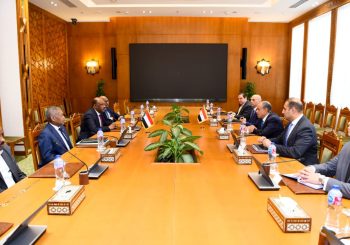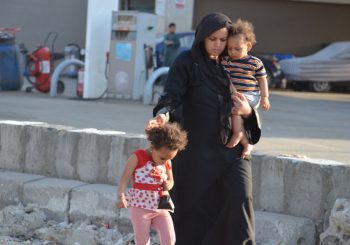Egypt announced on Sunday that construction of its first nuclear power plant will begin in the next two to two and a half years, according to Reuters.
The plant is to be built by Russian-owned construction company Rosatom, following an agreement in 2015 for Russia to build a nuclear power plant on the Egyptian soil after extending a loan for Egypt to cover the cost of construction.
The loan is said to be worth $25 billion and will finance 85 percent of the value of each work contract (including services and equipment shipping), with Egypt expected to fund the remaining 15 percent.
Among other benefits, the nuclear plant is said to have a 4,800-megawatt capacity. It is to be built in Dabaa, located in northern Egypt.
Egypt’s president Abdel Fattah Al-Sisi and Russia’s Vladimir Putin signed the deal back in December. The deal points to a better longstanding relationship between Russia and Egypt with Mr. Putin commenting “I am pleased to note that our economic ties are developing at a fairly high rate. We really have a lot of good projects ahead [including] the nuclear power plant,” as reported by the Financial Times.
Though the plant is said to bring economic growth and jobs to the Dabaa region, and Egypt as a whole, as well as providing a way for Egypt to meet its growing energy needs, the prospective nuclear plant has been met with considerable criticism. The general public as well as Greenpeace expressed Egypt’s need to be turning to renewable energy sources rather than a nuclear power plant, which isn’t as sustainable.
Although Egypt has traditionally depended heavily on oil and gas as its main energy supply, it is a strong candidate to become an clean-energy dependent country with plenty of land, sun and high wind speeds according to National Wind Atlas. The Egyptian government has recently steered its efforts towards constructing wind farms.
Figures released by the Ministry of Electricity and Renewable Energy stated that Egypt aims to generate 20% of its energy generation from renewable sources by 2022 and 42% of its electricity from renewable energy by 2025.







Comments (2)
[…] key projects carried forward from the last administration are the development of a new nuclear plant in Dabaa, financed primarily by a loan from Russia worth $25bn. Another is the New Administrative Capital […]
[…] key projects carried forward from the last administration are the development of a new nuclear plant in Dabaa, financed primarily by a loan from Russia worth $25bn. Another is the New Administrative Capital […]